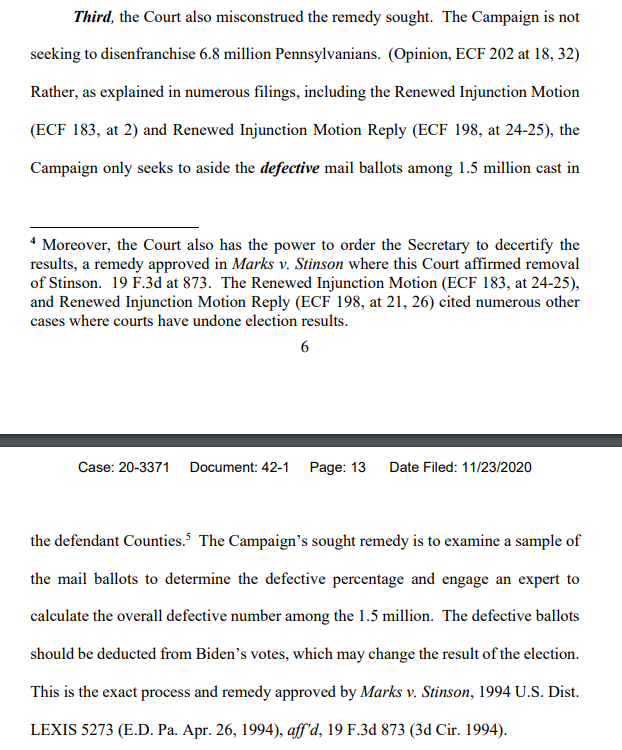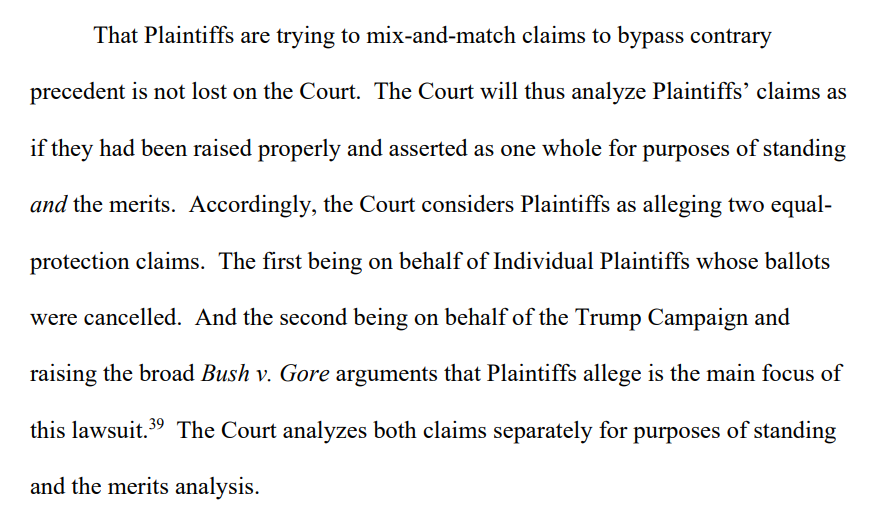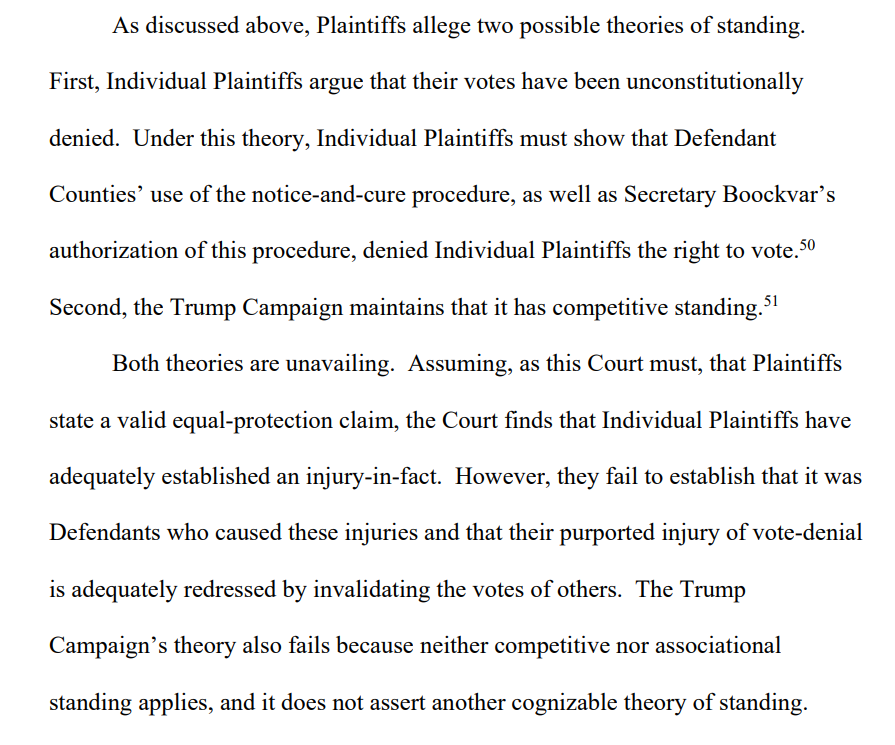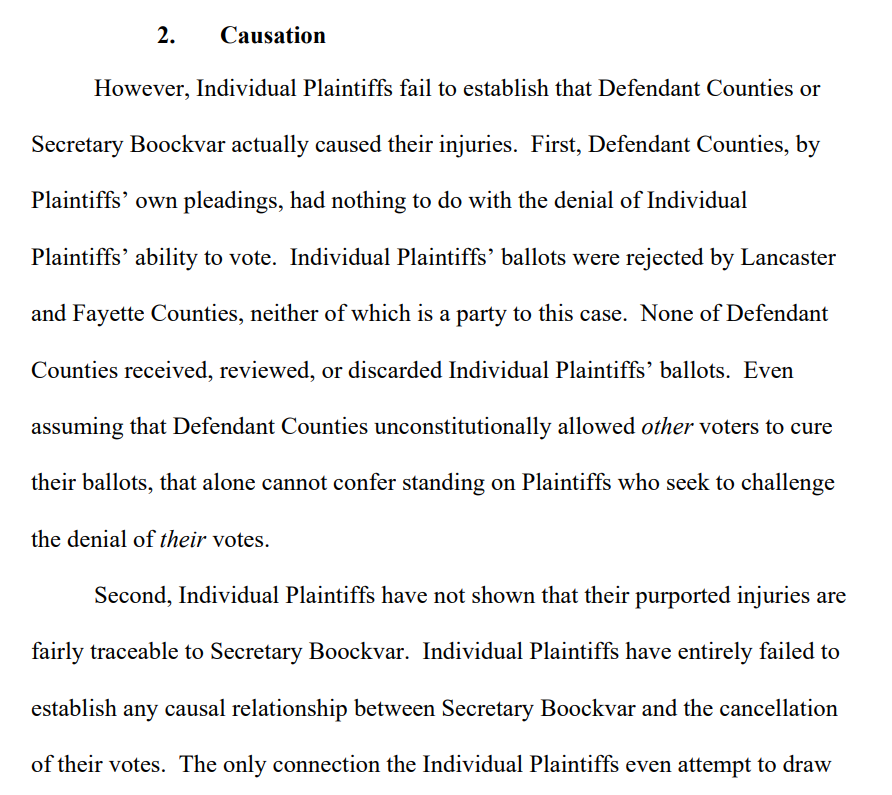
It is certainly true that losing a case gets you one step closer to appellate review. However /
https://twitter.com/ChrisMegerian/status/1330321841165111299
If you had instead won the case, you would have already won and wouldn't need to appeal, which is the usual strategy in litigation.
Also, if your goal is to tee up a case for appellate review, you don't want to lose like this.
You don't want to have to take up a case that you lost in part because it was incompetently litigated. And you don't want to take up a case you lost for Every Possible Reason.
You don't want to have to take up a case that you lost in part because it was incompetently litigated. And you don't want to take up a case you lost for Every Possible Reason.
Why, you ask? Because if you lost on standing and on the merits and maybe some other things, the court only needs to disagree with you on one of them and you're done.
Also, conservative judges will have lots of reasons to hate this case. Ruling for Trump would require adopting a really expansive rule for standing, which they don't like. And they couldn't rule for him without opening the door to a whole lot of other election litigation.
Trump's theory would make every election inequity into a federal case. Was a voting line in Atlanta so long some people couldn't vote? Under this theory, voters there could sue other counties in the state that had shorter lines. That's basically Trump's argument in PA.
And even if you get the case to the Supreme Court, then what? Can you finally unburden on the court all the evidence of the Giant Election Rigging Fraud you failed to raise in the district court?
No. In general, issues not raised below are waived.
No. In general, issues not raised below are waived.
And then, even if you get the case to the Supreme Court and somehow win on each and every issue -- standing, merits, etc. -- your reward is a remand back to the district court, where you can try to prove the claims you actually made in your complaint.
And if somehow your complaint failed to allege the massive fraud that you claimed TV? (And if your amended complaint also failed to allege this and you successfully appeal the denial of leave to file it?) Then you still don't have a way to raise the massive fraud in court.
This is a victory in the sense that spilling food on yourself helps your strategy of having to do laundry sooner.
This concludes my talk on why lawyers generally prefer to just win their cases.
• • •
Missing some Tweet in this thread? You can try to
force a refresh













